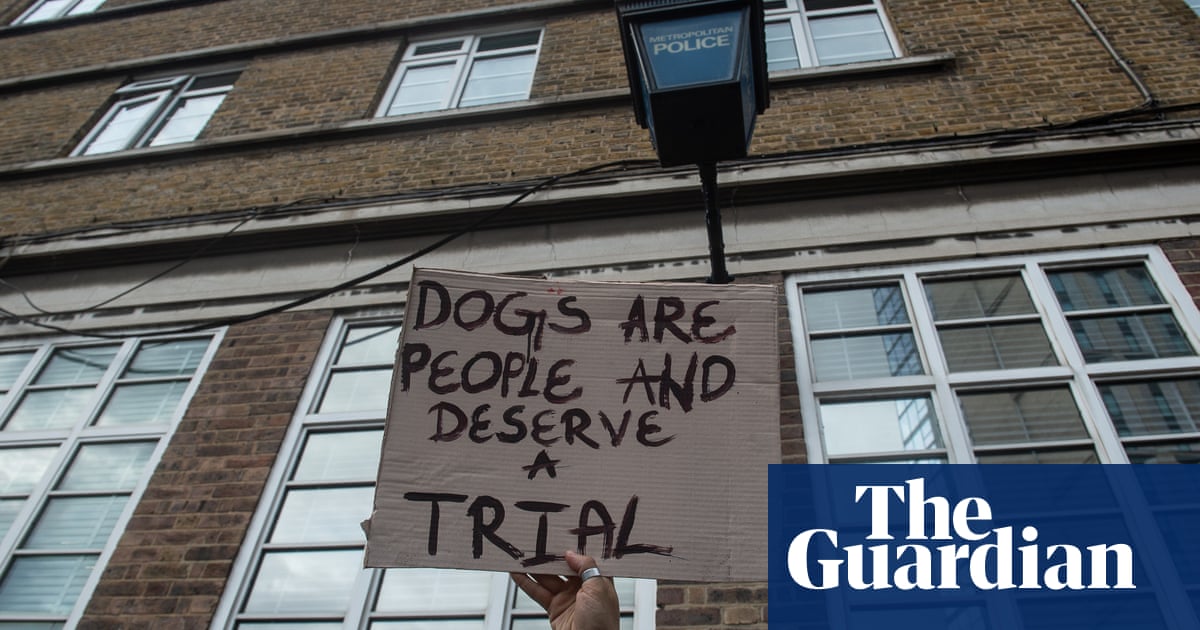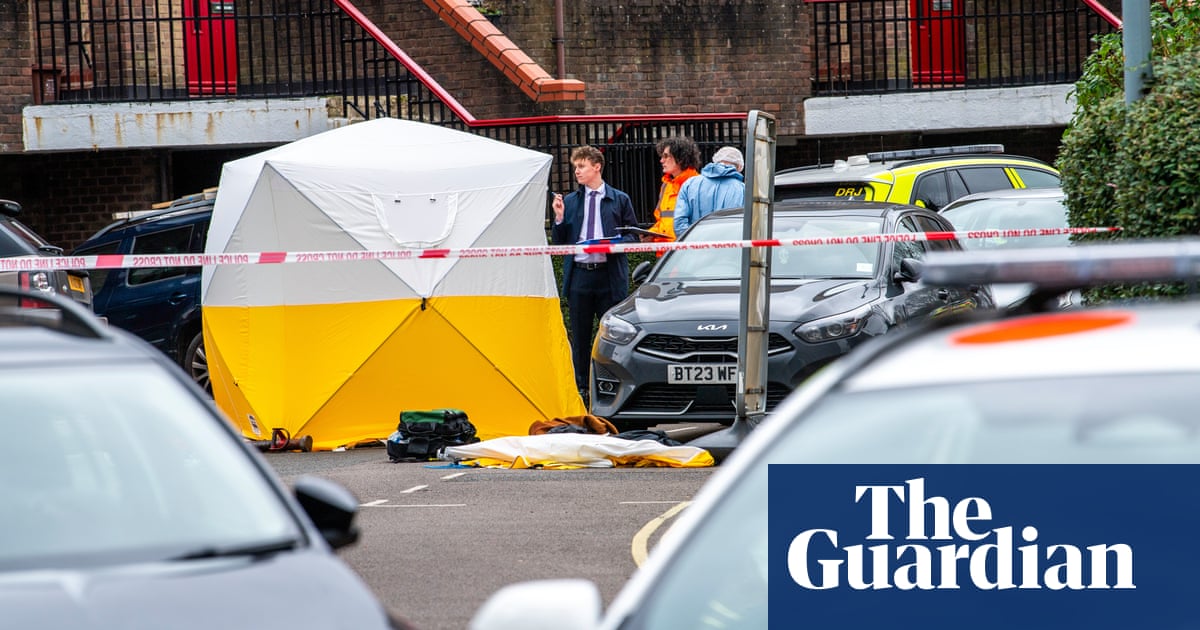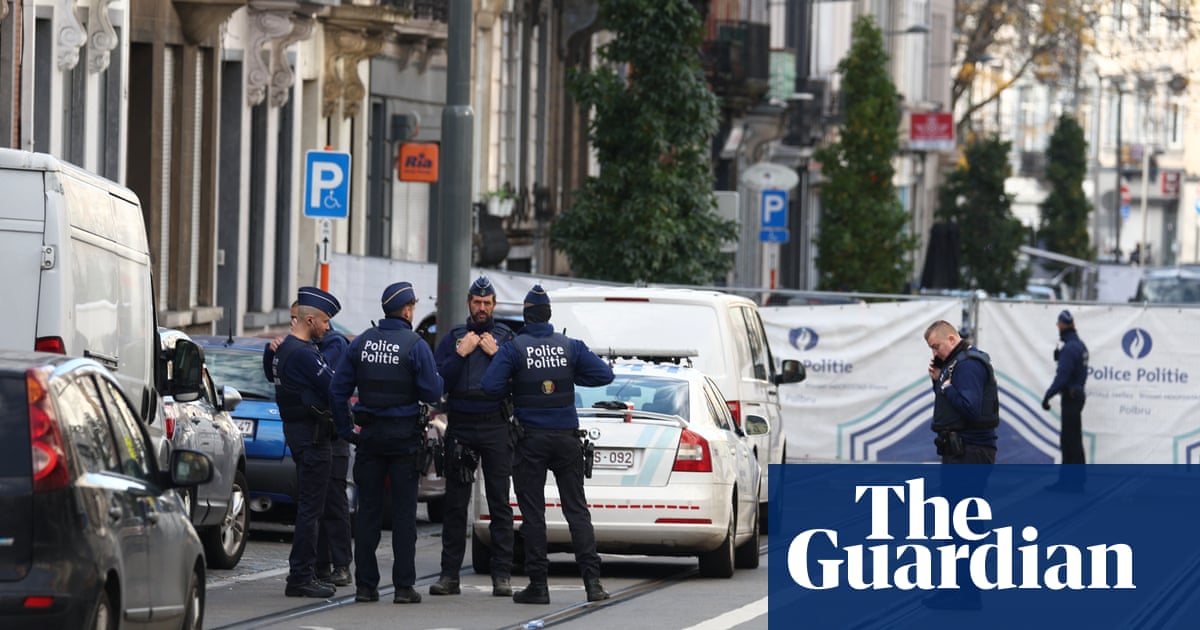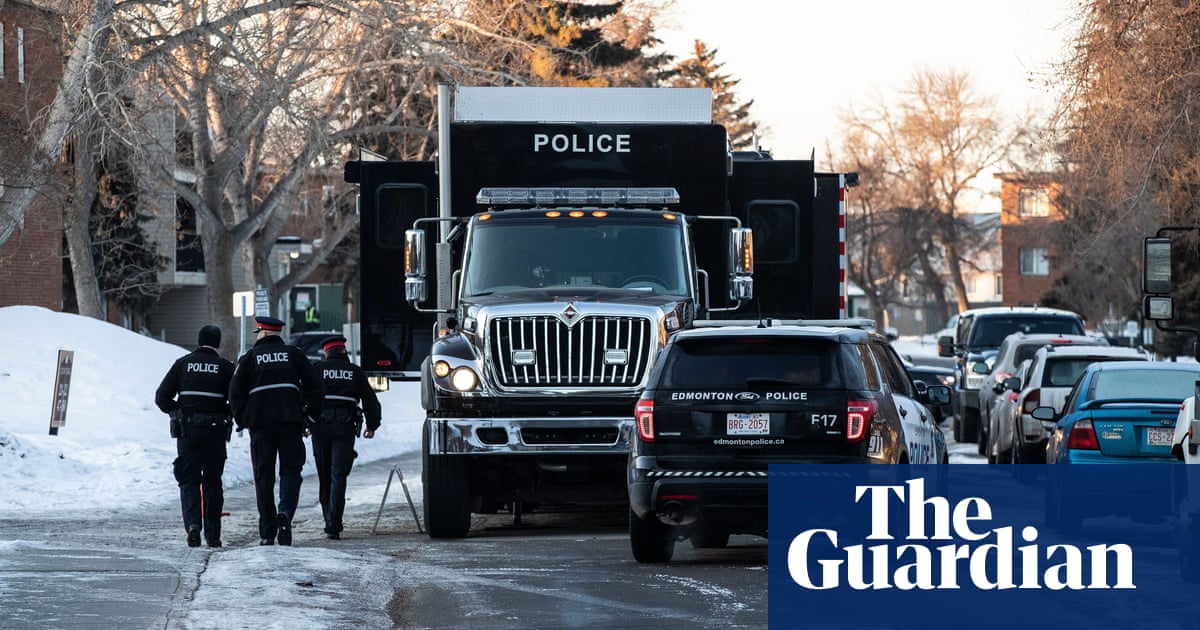
The man who died after being shot by armed officers during a knife attack in West George Street, Glasgow, has been named as Badreddin Abedlla Adam, 28, from Sudan, Police Scotland said.
Staff at the hotel were told of concerns about the suspect’s mental health the night before the incident, the Guardian has learned.
The victims, including a police officer and two teenagers, were seriously injured in the attack at the Park Inn on Friday.
Fellow hotel guests said they had passed on their concerns about the suspect after he began behaving erratically. It is believed that his application for voluntary return had been stalled by the coronavirus pandemic.
At the beginning of the lockdown an estimated 380 refugees and asylum seekers were moved by the private housing provider Mears from their individual accommodation into six hotels in Glasgow city centre.
One man, who gave his name as Siraj, said the alleged attacker told him on Thursday evening that he was considering attacking fellow residents. “He said: ‘Everyone here in the hotel is against me.’” Siraj alerted hotel reception staff to the conversation on Thursday evening. He said this was followed up with him by a Mears representative on Friday morning.
The Guardian understands hotel staff passed on these concerns to Mears on Thursday night, and that a welfare officer for the housing provider spent time talking to the man.
It is also understood the alleged attacker had complained to fellow residents and hotel staff about noise coming from other rooms and disturbing his sleep during the night.
Chris Stephens, the SNP MP for Glasgow South West, said that while he would not speculate on the ongoing investigation, the Home Office had significant questions to address about how they assessed the vulnerabilities of those placed in the hotels.
“There needs to be immediate clarity on who was placed in the hotels and what assessment, if any, was carried out,” he said.
On Thursday Mears’ chief executive, John Taylor, said asylum seekers were moved into hotels without formally assessing individual vulnerabilities. He insisted, however, that pregnant women, children and those with significant mental health problems were swiftly relocated.
Stephens, who last week held an adjournment debate on asylum-seeker services during the pandemic, said he would be seeking a meeting with Home Office minister Chris Philp as a matter of urgency.
He said: “Whilst we cannot speculate on yesterday’s events, it’s imperative that the Home Office addresses the many outstanding questions about treatment of asylum seekers in these hotels, including the support that was given and the fact that charities had to step in to provide food for residents.”
The SNP MP for Glasgow Central, Alison Thewliss, called on Mears and the Home Office to come forward with an immediate plan for supporting the Park Inn residents, many of whom were reported to have been traumatised by the incident and who have been moved to another hotel .
“People should never have been in hotels in the first place. I see people all the time at surgeries who are really vulnerable and understandably struggling, and the Home Office makes that worse all the time.
“To be moved around by their accommodation provider during a pandemic left people isolated and unable to access their support networks. The stress of this cumulative to what else they had experienced made it very difficult.”
Thewlis said she wanted to see people moved into their own flats as a matter of urgency.
Mears announced that it was planning a phased return to individual accommodation on Thursday, before the attack took place.
“People should be in their own accommodation rather than hotels and they must reinstate support payments, because that was a clear contributor to the stress they have been under,” said Thewlis.
All financial support was withdrawn when the asylum seekers entered the hotels, apparently because the hotels provide three meals a day, basic toiletries and a laundry service.
Robina Qureshi, director of the Glasgow-based refugee homelessness charity Positive Action in Housing, described the “desperation” of asylum seekers moved in hotels during lockdown.
“Yesterday’s tragic incident in Glasgow underlines our concerns about the conditions in which vulnerable asylum seekers are forced to live. They have lived like this for over three months now, unable to socially distance, buy crucial mobile phone top-ups, to keep in touch with lawyers and family back home.”
Qureshi said concerns had been raised consistently about rising levels of poor mental health, particularly after a Syrian refugee who had previously expressed suicidal thoughts was found dead in one of the hotels in May.
A Home Office spokesperson insisted that the hotel residents had access to healthcare and all of their essential living needs and costs are met. They said: “Throughout this pandemic, we have prioritised providing asylum seekers who would otherwise be destitute with free and safe accommodation that enables public health guidance to be followed.”
In a statement released on Saturday afternoon, Sabir Zazai, chief executive of the Scottish Refugee Council, expressed his “devastation” and called for a “united and dignified response in grief”.
“We have expressed repeated concern over the last three months about the use of hotel accommodation for people in the asylum system. These are people who have lost their homes and livelihoods and are desperate for a new start but who otherwise are no different from the rest of us in Glasgow.
“It has always been our belief that people who are in Scotland seeking refugee protection require and deserve safe, secure accommodation – a home – from which to rebuild their lives. Temporary accommodation can never fulfil this.
“Until more facts are confirmed about what happened yesterday, we will not be able to comment further on the issue of hotel accommodation. But we stand ready as always to work in partnership with all relevant parties to support people and seek a swift end to the use of temporary accommodation in Glasgow.”
On Saturday, in a sign of the rising tensions in Glasgow over the past few weeks, Police Scotland imposed an order allowing their officers to stop and search any individual or vehicle in the city until Sunday morning.
Members of the far-right National Defence League have confronted refugee rights and anti-racism activists on several occasions.
Last week they disrupted a protest by the campaign group No Evictions Glasgow over the living conditions of asylum seekers in hotels. NDL members claimed they wanted to “make a stand” and protect the Cenotaph in Glasgow’s George Square, but they were described by the first minister, Nicola Sturgeon, as “racist thugs”.












